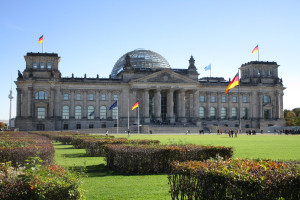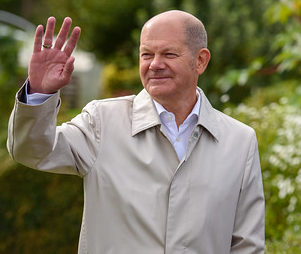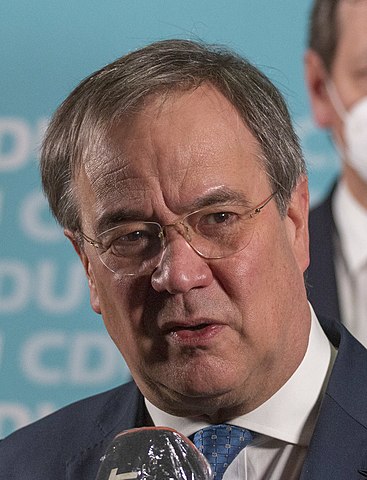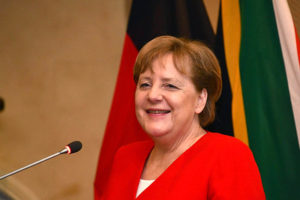
German polls’ Implications
 By Venkatesh Raghavan
By Venkatesh Raghavan
Germany’s relationship with NATO would be something to watch out for, in the event of the SPD assuming center stage in the power equation
The battle for stewardship of Germany after the recently concluded polls promises to be a long and protracted one, with different possible political alliance permutations throwing up ideologically opposed power sharers.

For now, the Socialist Democratic Party (SPD) is in celebration mode with its leader, Olaf Scholz hailing the German electorate’s verdict as a clear mandate for his Party and allies. The post poll alliance is expected to witness the SPD having a tie-up with the Greens and Liberals. Interestingly, SPD’s margin of victory over its rival conservatives was a very narrow one. This has led to the rival Conservative political leader Armin Laschet harbouring hopes of snatching victory from the cliff-hanger situation. News reports coming later on Tuesday however, stated that Laschet was feeling resigned owing to the setback his party was facing.

Scholz expressed the view that the Germans clearly wanted a change and desired that it’s time for the long ruling Christian Democratic Union (CDU) to sit on the opposition benches. Poll observers and political experts however, sounded cautious stating, “It might take as long as Christmas for a clear picture to emerge on the alliance front. Though the CDU has performed way below par than in the previous elections that were held, the numbers game suggest that it’s a hung verdict.”

Through the current air of uncertainty, political analysts weighed the prospects of how a change in leadership could impact the post Angela Merkel era in Germany’s fortunes, both on the domestic and foreign relations count. The political pundits predicted that if the power switch favoured the left-leaning SPD, the focus would shift towards garnering an increase in the country’s financial stability, favouring a better performance on the economic front. The observers also opined that Germany’s relationship with NATO would be something to watch out for, in the event of the SPD assuming center stage in the power equation.
The other variables that the experts sought to watch out for was Germany’s long-standing relationship with the poll-bound France in April next year, accentuated German role in the European Union’s (EU’s) policy making and greater momentum in addressing EU’s financial matters. Chancellor Merkel who had been at the helm of affairs since her first being voted to power in late November, 2005 is slated to complete an uninterrupted 16-year stint before her exit, given that the post-poll alliances is capable of throwing up three different combinations and will need time for the murk to finally settle down. That will also make Merkel the first German Chancellor who opts out from getting re-elected since the post World War days.
For the present, however, Germany’s participation on the international front will enter into a temporary passive phase till the final power sharing alliance is announced.




